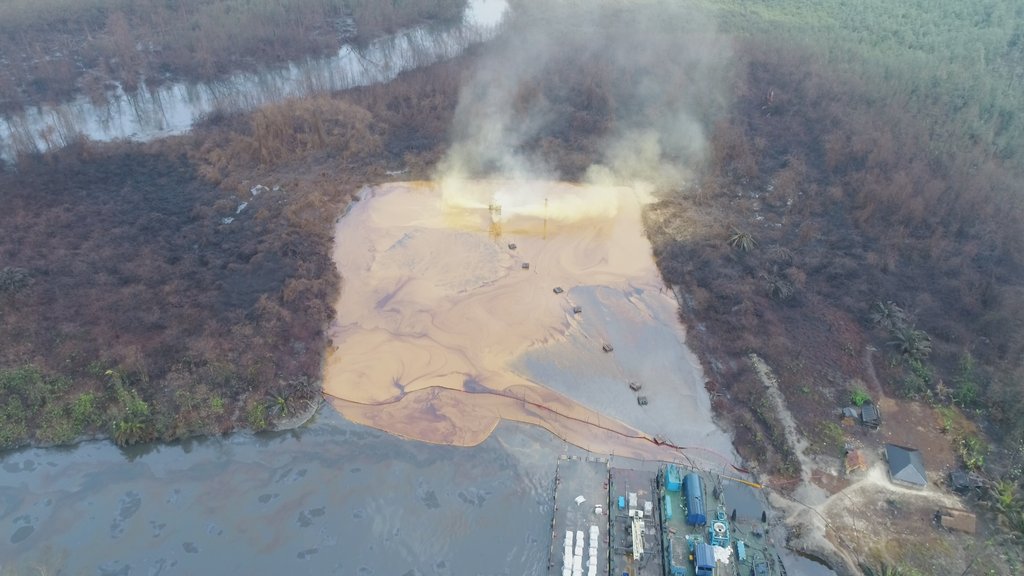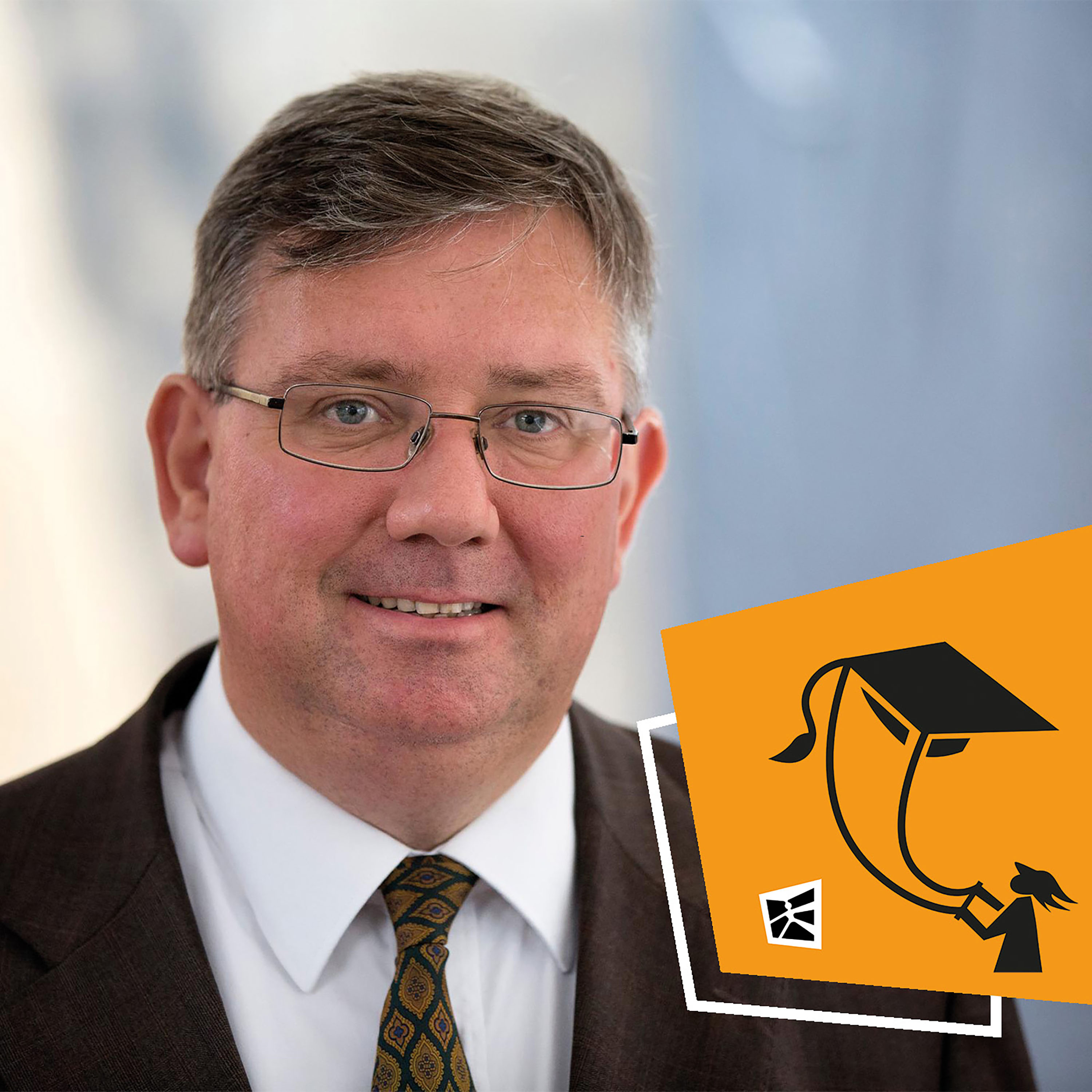Research - 30.06.2023 - 09:15
HSG research on oil spills in Nigeria
A paper on the effect of oil spills on infant mortality in Nigeria from 2017 leads to landmark investigation on the true cost of Big Oil in Bayelsa State, Nigeria. From surveys by forensic scientists to extensive testimony from communities, Commission report includes overwhelming evidence about the damage and devastation to land and lives.

HSG-Forschung zu Ölverschmutzung in Nigeria
In 2017, Anna Bruederle and Roland Hodler did a study that provided evidence on the effects of onshore oil spills on neonatal and infant mortality in local communities in the Niger Delta. Until this study, later published in the Proceedings of the National Academy of Sciences, no causal evidence existed on the effects of onshore oil spills on human health.
For many developing countries, the exploitation of natural resources, including oil and gas, has been a curse rather than a blessing. Especially when a country’s institutions and rule of law are frail, wealth in natural resources tends to spur rent-seeking, corruption and civil conflict. Not to mention that the extraction of resources like oil and gas can bring along irreversible environmental degradation and threats to human health.
Over 13 000 oil spills in 15 years
Africa's most populous country and its largest oil producer is Nigeria. It is a prime example of this natural resource curse. Already a victim to political instability, civil conflict and rampant corruption, the giant of Africa has suffered from severe environmental pollution – mainly as a result of oil spills. Shockingly, the Nigerian National Oil Spill Detection and Response Agency has recorded 13,250 oil spills in this region from 2006 to 2020.
After oil spills, local residents come into contact with toxic crude oil via contaminated water and soil; they ingest contaminated crops, water and fish and they inhale toxins vaporized in the environment. Epidemiological and clinical studies on health suggest that exposure to hydrocarbons and to particulate matter can have severe adverse effects on human health, whereby unborn and newborn children are particularly vulnerable.
In this study, Bruederle and Hodler looked at the birth histories for over 23,000 Nigerian mothers. They found that oil spills which occurred within 10 km prior to a child’s conception strongly increased the risk of mortality during the first month of life, indicating that oil spills increase neonatal mortality rate in these areas by 100 percent.
Immediate resonance
Shining a light onto this problem with scientific and causal evidence had an immediate effect both in Nigeria and globally. The study was published on 17 September 2017 and by November of 2017, the study and its findings were being picked up by major news outlets in the world over. Top publications like the Guardian, Newsweek, Al Jazeera covered the story. The BBC sent a team of journalists to interview victims and government officials for an in-depth news report. In all, around a 120 stories in 5 languages reported on the study.
In early 2018, Hodler started receiving requests. One of the UK's most prominent human rights and social justice law firms Leigh Day wanted Hodler’s advice before their firm sued Shell Oil in a London court on behalf of two affected Niger Delta communities. The law firm cited Hodler’s work in the case. Amnesty International also cited the study and even an NGO writing a book educating children on oil spills aligned themselves with the study.
Work on the Commission
For the past four years, the Bayelsa State Oil and Environmental Commission has investigated the environmental and human damage caused by multinational oil companies and developed recommendations for a new framework to govern these operations and ensure that host communities benefit from the activities of the oil industry.
On the 16th of May 2023, they launched the final report. Hodler played an integral part on the team and focused primarily on the economic effect, and the remediation solutions in the report. In commenting on his work with the Commission, Hodler said, “the process was lengthy and tiring, but ultimately I am very pleased with the findings and conclusions.”
Key Findings
- The study showed the dramatic extent of how oil-related contaminants have entered ground water and the human food chain, some superseding WHO thresholds by 1000 times
- Recommendations included a governance structure that would support local communities more and oil companies less
- 12Billion US dollars were requested to repair, remediate and restore the environmental and public health damage, which primarily should come from the oil companies involved
“Getting rid of the ‘slick alliance’ benefitting the oil companies and the federal government was a primary motive for my work. Empowering local communities is one of the recommendations that I hope really takes hold,” said Hodler.
One question that still occupies Hodler has to do with how much responsibility the West should shoulder given that our oil-fuelled economic development ultimately led to the denigration of the people in the Niger Delta. The report has been covered by the BBC, CNN and many Nigerian newspaper. But while there has not been an official comment on the report since its official launch from London in May, the second official launch in Nigeria hopes to put the findings back in the spotlight and put more pressure on the Nigerian federal government to implement the findings.
In 2019, Anna Bruederle and Roland Hodler won the HSG Impact Award for their work on the Nigerian oil spills.
Anna Bruederle is a former PhD student in Economics from the University of St.Gallen and currently works for an NGO in Geneva. Professor Roland Hodler is an economist at the Swiss Institute for International Economics and Applied Economic Research (SIAW-HSG) at the University of St.Gallen and a research fellow at CEPR, CESifo and OxCarre. His research dives into the economic, political and social effects of ethnic divisions, natural resources and foreign aid.
Image: iStock / Modest Franco
Contact
Roland Hodler
Prof. Dr.
Professor
SIAW-HSG
Büro 29-105
Bodanstrasse 8
9000 St. Gallen
Büro 29-105
Bodanstrasse 8
9000 St. Gallen
Mirjam Anna Brüderle
Research Associate
SIAW-HSG
9000 St. Gallen
9000 St. Gallen
More on topic
More articles from the same category
This could also be of interest to you
Discover our special topics
















